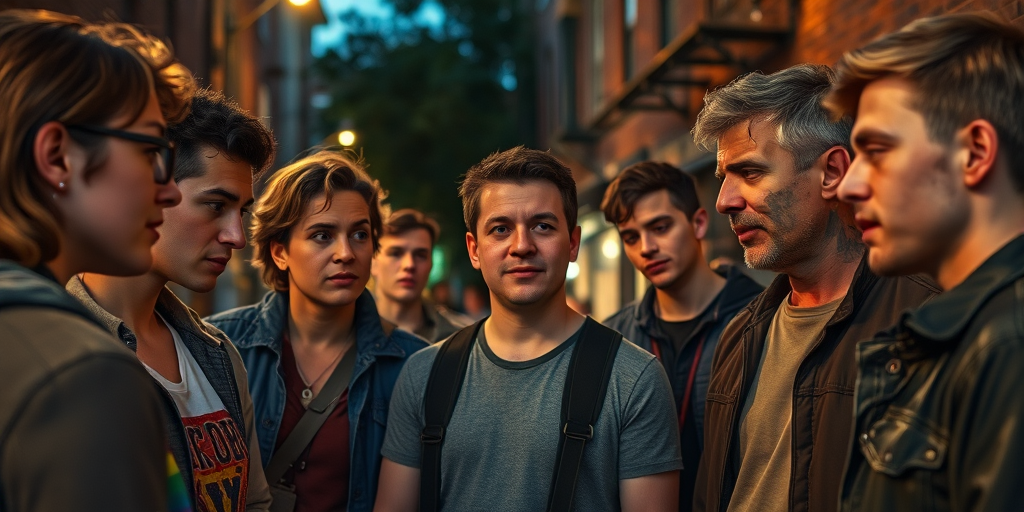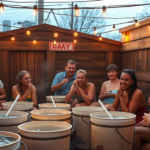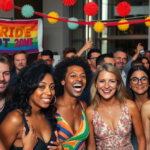The Lavender Ledger: Navigating the Modern LGBTQ+ Landscape
In a world where societal changes are as constant as the hands of a clock, understanding the evolving landscape for LGBTQ+ individuals is vital. “Erin In The Morning” introduces “The Lavender Ledger,” a weekly reader designed to shine a light on the essential yet often overlooked stories affecting the LGBTQ+ community. While traditional media outlets capture the surface, this reader dives into exclusive leads and insights, providing a compass for navigating the complexities of today’s socio-political environment.
A New Threat: Rebranding of Conversion Therapy
Emerging as a concerning trend, conversion therapy is quietly undergoing a disconcerting rebranding. Now dubbed “gender exploratory therapy,” this approach strategically targets transgender youth, fostering doubt about their identities under the guise of exploration. Such practices, critics say, sideline any genuine intention to assist young individuals through their gender journeys. Experts warn of the psychological ramifications this could have, emphasizing the necessity of scrutinizing such therapies’ effectiveness and ethical grounding.
“Conversion therapy, regardless of what it’s called, remains a harmful practice,” asserts Dr. Laura Kline, a psychologist specializing in LGBTQ+ youth in Massachusetts. “These methods ignore the legitimate needs of transgender teens and foster an environment of misunderstanding and fear.”
As legislative bans on conversion therapy face potential Supreme Court reviews, this subtle rebranding raises alarms over safeguarding the mental well-being of transgender youths.
Religious Roadblocks: Gender-Affirming Care in Catholic Hospitals
In another significant development, U.S. bishops have officially proscribed gender-affirming care within Catholic hospitals, complicating the health care landscape for transgender individuals reliant on these institutions. While the Catholic Church has at times shown signs of inclusivity, this move underscores the tensions that still exist between doctrine and the medical needs of the LGBTQ+ community.
Robert Jenkins, a trans rights advocate based in Cincinnati, Ohio, voices concern over this new directive. “This is more than just a religious issue; it’s about access to essential health care,” he states. “Many individuals rely on these hospitals for their services, and now they’re forced to seek care elsewhere, often far from their homes.”
With Catholic-affiliated hospitals serving approximately one in seven patients nationwide, the decision poses logistical and ethical challenges, pressuring systems to accommodate patients who might otherwise face restricted access.
International Implications: IOC’s Proposed Ban on Transgender Athletes
On the global stage, the International Olympic Committee (IOC) plans a contentious policy that may exclude transgender athletes and those with intersex traits. The anticipated rules, set to unfold next year, could usher in invasive medical testing. The implications extend beyond sports, symbolizing a wider reflection of sociopolitical trends and the power dynamics within international sports governance.
“Sports inclusivity is about more than just who wins a medal. It’s about affirmation and representation,” explains Alex Jordan, a sports analyst who closely follows Olympic policies. “This proposed ban highlights not only the struggles athletes face but also how global politics can shape the playing field.”
Such a policy could spur diplomatic friction, especially in nations pushing for progressive stances on gender and sexuality.
Impact on the Local Community: Why It Matters
For local readers of Woke News, these headlines signal broader shifts with tangible effects. Communities across the United States, from urban centers to rural territories, increasingly grapple with these emergent challenges within health care, sports, and youth welfare.
In Austin, Texas, community activist Maria Gonzalez emphasizes, “We’re watching national and global policies trickle down, influencing local attitudes and legislation. It’s critical to remain informed and engaged with resources like ‘The Lavender Ledger’ that sift through the noise to offer clarity and direction.”
Looking Forward: Preparing for the Future
With these developments, communities must remain proactive. Ensuring that local infrastructure and support systems, such as community health centers and advocacy groups, are equipped to guide residents through these shifting tides becomes ever more important.
Local organizations like TransHealth Initiative and community-based sporting leagues demonstrate potential pathways for inclusive practices, providing models that could inspire broader acceptance and integration across other domains.
Ultimately, as The Lavender Ledger encourages community involvement through both subscriptions and active participation, it underscores the importance of committed and informed citizenship. In an era demanding vigilance and allyship, it acts as a reminder of the shared responsibility to foster an environment of understanding and equality.
For those interested, local resources and helplines are available to provide support and further information. The GLAAD Media Reference Guide and The Trevor Project offer nationwide assistance, while local LGBTQ+ centers provide grassroots support.
Through subscribing and engaging with independent LGBTQ+ media, residents can become well-versed navigators of an ever-evolving landscape, championing the local impact, fostering community interests, and ensuring residents’ voices resonate amid the winds of change.







